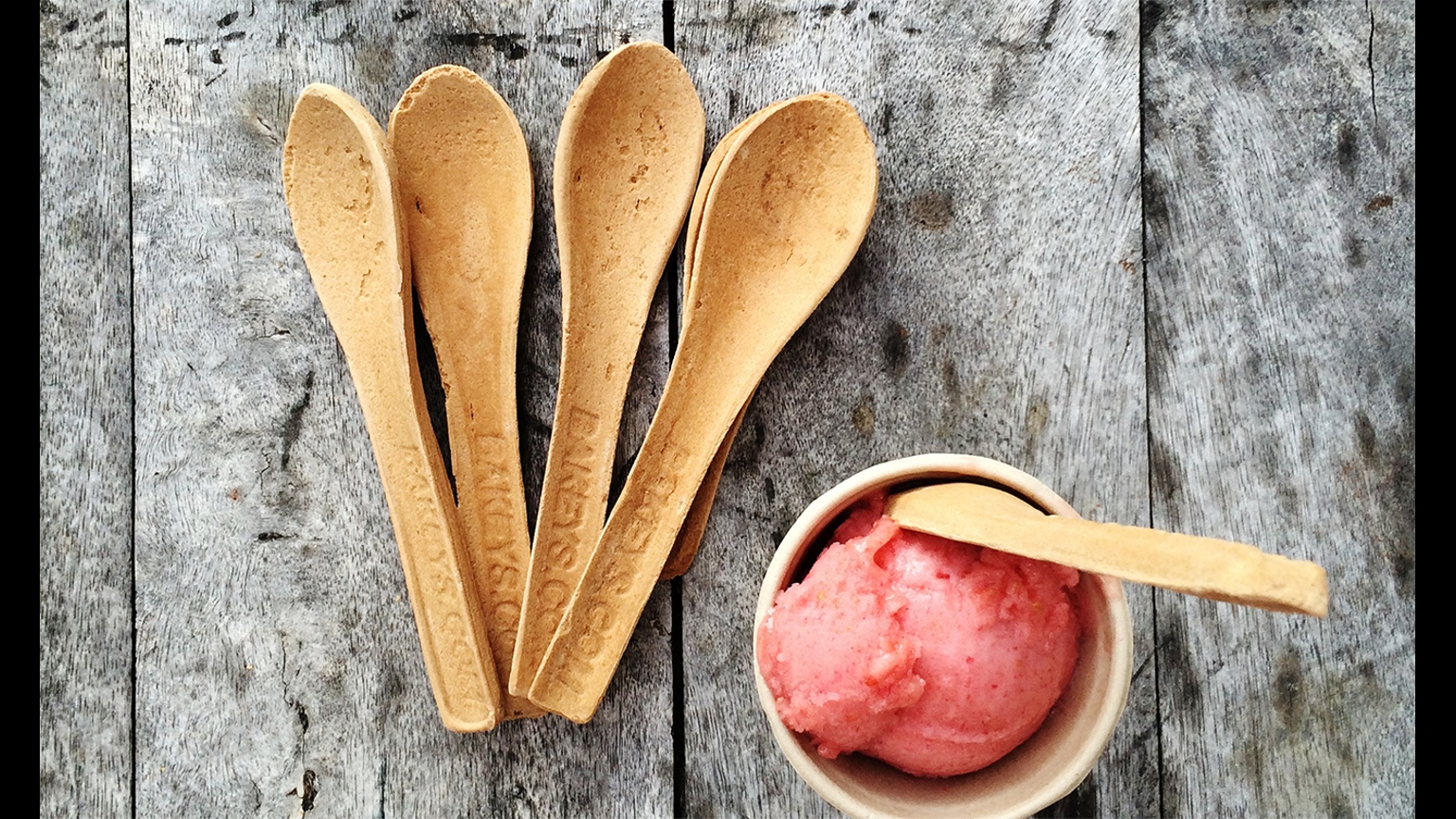Tired of plastic waste littering our streets and oceans? Why not minimize our use of plastic and replace disposable plastic utensils with edible spoons?
Narayana Peesapaty, a researcher from India, has developed edible spoons made of millet, rice, and wheat flours in 2010. They contain no preservatives and come in a variety of flavors: sugar, ginger-cinnamon, ginger-garlic, cumin, celery, black pepper, mint-ginger, and carrot-beetroot. The spoons have a shelf life of two to three years.
“You can eat it up. If you don’t want to eat it, you can throw it. It decomposes within four to five days,” Peesapaty said in a promotional video. Watch it here:
So far his company sells 1.5 million of spoons every year. The goal is to replace the current disposable utensils on the market. Peesapaty explains that plastic utensils not just contribute to waste but could also be bad for health.
“How many of us know that plastic is a petroleum derivative and contains several toxins, some of which can cause cancer. These leach into food and we are using them in increasing numbers? And the reason? Simply because they are very inexpensive. What about the cost on health?”
Recently he launched a Kickstarter campaign that will allow him to reach more people and produce more spoons. Apparently inquiries are flooding in from around the world.
Peesapaty has closed in on Sorghum as the preferred raw material because it is environmentally-friendly to produce on a massive scale. Sorghum is very nutritious and requires much less water compared with sugarcane, corn, and rice.
So what do you think of using edible spoons? As for myself, I can’t wait for these edible spoons to reach our shores. We need as many solutions as possible to save the planet from pollution and waste. Maybe some enterprising fellows in our own country will take the initiative of also producing our own edible utensils. I hope so.
If you liked this article, you might also enjoy this: 15 Easy Things Everybody Can Do to Help Ease Global Warming







